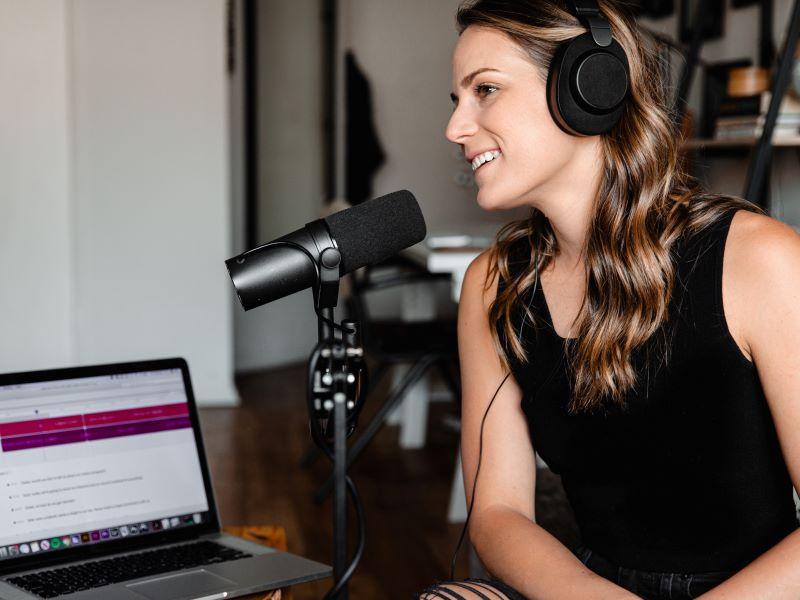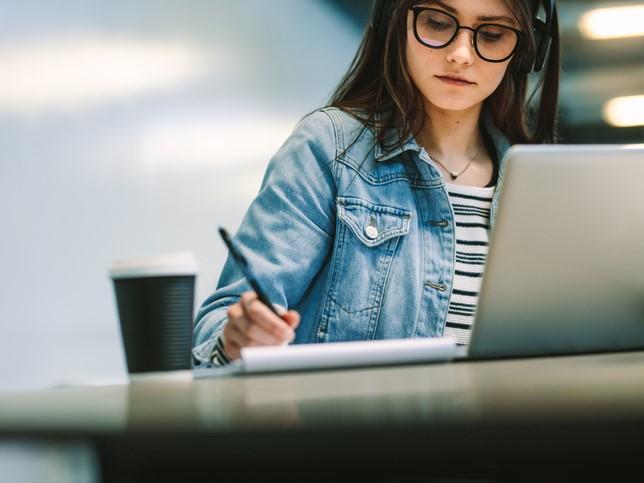
The power of participatory podcasts as a research method
“I feel like for Pres Party as a whole, we can talk about things for ages” (Tae, 21.59, Episode 4).
The Preservative Party is a group of 14- to 24-year-olds, established 12 years ago by Leeds City Museum’s community outreach team. Together, we held an exhibition about whose power is overlooked in traditional histories of energy, based on my research area of late-19th-century women making everyday energy decisions in their homes. This led to the launch of Whose Power?, a five-part podcast series exploring our project. We are also launching a new version of the exhibition at Leeds Museum’s Discovery Centre.
- Spotlight guide: Take your research outside the academy
- How to start a language-teaching podcast
- Five things to know before you launch a research podcast
We've covered how engaging young people in participatory research requires trust previously on Campus. But given the group’s diversity, traditional forms of articulating learning and transformation come with additional barriers. Because of these barriers and the evolution of the Whose Power? project from its original form, our research outputs had to be authentically us.
The medium of podcasting raises crucial questions that have been central to Preservative Party work about who produces research, interacts with it and critiques it. Through producing Whose Power?, we found a medium by which we could prioritise our voices, hold on to our individual personalities, explore the impact of our very different social and educational contexts and overcome academic gatekeeping. As group member Tae said, we’re not “pretending to be something we're not by having the research paper done […] it was […] more genuine and like us” (22.19, Episode 4).
Vulnerability and the power of the voice
“Pres Party has given me my voice in a way, and showed me that it’s safe and OK for me to speak on things that I care about and things that I find important […] that other people should be aware of” (Tae, 17.59, Episode 4).
Making the decision to use the podcast as a participatory method is steeped in current academic discourse about what is considered a valid research output. As we have learned throughout the process, the podcast is no less valuable because of the discursive nature of the media. Rather, the podcast invites researchers to demonstrate a level of respect, while reflecting on the very nature of our research experiences.
For all our differences in educational experience and social context, one of the clear lessons that we have had through our conversations in the podcast studio is the importance of sharing our insecurities and the intimacy that came from recognising our vulnerabilities. From professor to producer to Preservative Party, being open, making safe spaces to share concerns, providing time and being patient were key to the success of the podcast as both method and output.
Opening up to the vulnerabilities that come with doing and sharing research via a podcast has, as Tae says, “definitely empowered me more, I felt like I wouldn’t have been able to have this voice that I apparently do have now” (15.13, Episode 4). The power of the podcast as a participatory method lies in its ability to give Preservative Party members an active voice.
Recording as reflection
“That word, reflection, is really important […] And that’s definitely what the group of young volunteers force us to do all the time” (Esther, group facilitator, 21.25, Episode 2).
As I highlight when I was interviewed by Preservative Party members in Episode 3, the entire Whose Power? project asks us to reflect without the strict boundaries that usually constrain thinking. The possibilities here are endless, driven by our circumstances and vulnerabilities.
This ability to reflect has “a lot to do with trust”, according to podcast scholar Martin Spinelli. His words spoke specifically to the importance of our relationship with Chris and Krissie of Research Podcasts in the Whose Power? podcast process. Our relationship developed from introductions to commissioning, training, production and post-production. They were willing to listen to our needs – as Preservative Party member Bobby explains: “Our wonderful producers […] said this is how we do a podcast. And we’ve gone […] we’re going to approach it a little bit differently” (04.43, Episode 2). This trust is vital when podcasting as part of a participatory action research project with young people.
Insurgent silence and laughter
“Scholarly podcasting is an insurgency against academic structures that curb creativity, inhibit personal and collective transformations, and promote self-interest over generosity” (Ian M. Cook, Scholarly Podcasting, 2023).
A number of friends who have listened to Whose Power? have commented on the laughter throughout the episodes. We love the sound of that laughter. It reflects the overall experience of learning to work with, trust and be trusted by the Preservative Party. In Scholarly Podcasting, Why, What, How? , Clare Wright and Yves Rees, producers of the podcast Archive Fever, speak about the importance of fun and laughing in the podcast space, highlighting that podcasting is “collaborative” where the humanities “tend to work in isolation”.
However, “the brilliance of participatory research is that it’s different for everybody” (Bobby, 21.58, Episode 2). To be engaged in serious ideas while laughing and enjoying yourself feels like a deeply subversive action. Recording Whose Power? gave us direct examples of this – the laughter, fun, hilarity and creativity that were part of our process now seem like a deeply political act.
A key part of what podcasting brings as a participatory method can be heard in the way the vulnerability, anxieties and doubt of the young people as they sat in front of a microphone is captured. In Episode 2, the contrast between group members Bobby and Rahesa’s approaches to speaking about their Whose Power experience are represented through their very different but equally valid pace, tone and sound.
For the sake of listener experience, our producer Chris cut the length of the silences, but she still captured Rahesa’s hesitation, fear of speaking out about the life-altering experience of homelessness and lack of confidence, despite vital academic considerations about the power of and barriers to participation.
Our top tips
- Trust is vital before entering the studio.
- Go with the flow – structured and unstructured.
- Embrace the silence and the fun.
“Please don’t think that it’s going to look like the way you think it should look, or the way that you’ve seen it look for other people, because everybody’s style of participation, and everybody’s contribution is something completely different” (Bobby, 21.58, Episode 2).
Abigail Harrison Moore is professor of art history and museum studies at the University of Leeds. Lauren Theweneti is senior mentor of the Preservative Party at Leeds City Museum and associate lecturer in history at Sheffield Hallam University.
If you would like advice and insight from academics and university staff delivered direct to your inbox each week, sign up for the Campus newsletter.


